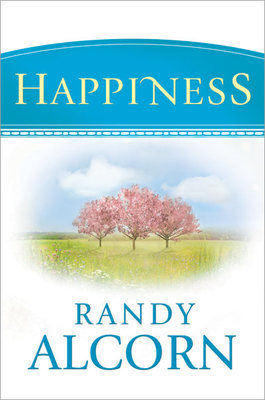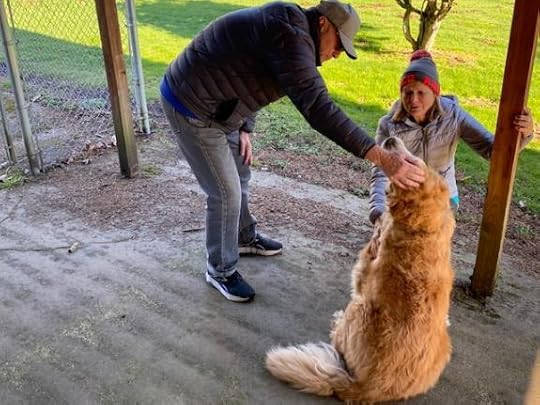Randy Alcorn's Blog, page 73
March 22, 2021
Abortion’s Role in Allowing the Sex Trafficking Industry to Continue to Exploit Women

The abortion industry’s role in empowering the abuse of women trapped in the sex-trafficking industry is often overlooked. One study of 66 human-trafficking survivors found that between them they had 114 abortions, with coercion playing a role in at least some of their abortions. “Notably, the phenomenon of forced abortion as it occurs in sex trafficking transcends the political boundaries of the abortion debate, violating both the pro-life belief that abortion takes innocent life and the pro-choice ideal of women’s freedom to make their own reproductive choices.”
Several investigations have also shown Planned Parenthood’s failure to report statutory rape and sexual abuse. One victim said she was taken to Planned Parenthood “because they didn’t ask any questions.” This is decidedly not pro-woman.
In this video from Students for Life, Patrina Mosley explains why abortion enables sex trafficking and violence against women.
Also see Patrina’s article “Abortion And Sex-Trafficking Are Undeniably Linked Abuses Against Women.”
Download the PDF of Randy’s book Pro-Choice or Pro-Life: Examining 15 Pro-Choice Claims—What Do Facts & Common Sense Tell Us?
In this thoroughly researched and easy-to-read book, author Randy Alcorn examines fifteen major claims of the pro-choice position and shares fact-based, rational responses. If you have mixed feelings about abortion, as many people do, this book can be part of your quest for truth. If you’re pro-choice or pro-life, it can help you think through your position.
If we have any hope of understanding and engaging with each other, let’s move our dialogue beyond bumper stickers, memes, and tweets. Randy encourages readers to listen carefully to arguments on both sides of the abortion debate, and to look at the evidence and weigh it on its own merit.
The print book is available from our ministry.
Photo by Ashley Byrd on Unsplash
March 19, 2021
Beware the Temptation to Be a Pharisee on Social Media

In this article, Daniel Darling addresses a temptation we as believers can often face on social media: “I’m a good person. I’m on the right side of all the right issues. And I’m here to publicly declare this to those not as good as me.”
As Daniel says, “From COVID to racial unrest to a divisive political election, there was no shortage of ways in 2020 to trust in ourselves and look down on everyone else.” I couldn’t agree more with his main point. May we examine our own hearts and see where we may be trusting (and broadcasting) our own self-righteousness instead of trusting in and proclaiming Christ. —Randy Alcorn
Resist the Pharisee Temptation on Social Media
By Daniel Darling
If you could have chosen one type of person to cancel in the first century, it would have been a tax collector. Jewish people, rightly skeptical of Roman power, viewed tax collectors as turncoats, those willingly colluding with the government to collect heavy taxes while taking a hefty commission off the top. Their work was gross, profiting off the economic misery of their own people.
In the Gospels, tax collectors—often referred to as “publicans”—were frequently lumped in with flagrant sinners as social bottom-feeders.
So when Jesus wanted to teach his disciples a lesson on repentance, forgiveness, and genuine faith, his choice of a tax collector as the hero came across as strange, almost insulting. And for him to choose a Pharisee as a foil was even more offensive.
And yet listen to the way Luke frames Jesus’s parable: “He also told this parable to some who trusted in themselves that they were righteous and looked down on everyone else” (Luke 18:9).
Who Are the Good People?
The Pharisees were the good people. They were rightly disgusted at the corrupt public servants who chased down their fellow citizens on behalf of the government and skimmed money off the top. And yet in this parable, who is the most aware of his own sin? It’s the publican, who went to the temple with lowered head and heavy heart, confessing his sin and begging God for mercy.
But the tax collector, standing far off, would not even raise his eyes to heaven but kept striking his chest and saying, “God, have mercy on me, a sinner!” (Luke 18:13)
Have mercy on me, a sinner.
At the same time, the Pharisee—the one known in the community for benevolence and goodness, who could be depended on to finger-wag the greedy—was the least self-aware and the farthest from mercy. Listen to him and hear the echoes of our age:
“God, I thank you that I’m not like other people—greedy, unrighteous, adulterers, or even like this tax collector. I fast twice a week; I give a tenth of everything I get.” (Luke 18:11–12)
I’m a good person. I’m on the right side of all the right issues. And I’m here to publicly declare this to those not as good as me.
Our Pharisee Culture
From COVID to racial unrest to a divisive political election, there was no shortage of ways in 2020 to trust in ourselves and look down on everyone else. Brands are quick to remind us they’re on the side of science, against racism, and want us to vote. And our social platforms are like modern-day temples where, like the Pharisee, we can clarify multiple times a day that we are not like those grifting public servants. Even at home, we are not immune to displaying our creeds on lawn signs.
For Christians, there is value in letting the world know where we stand, declaring the truth, and being ready to “give a defense to anyone” (1 Pet. 3:15). We shouldn’t hesitate to use our voices to stand up for the vulnerable and against injustice. And yet our words can so easily morph from prophetic witness to Pharisaical tribal signaling. In an era where it has become a cultural rite to declare that we’re on the right side of history on every issue, Christians are not immune to this. We are tempted to broadcast our own righteousness by letting everyone know—on social media, in articles and blogs, even in published books—that we are not like those other kinds of Christians.
Consider the story our church websites sometimes tell. “A New Testament church” implies, well, that other evangelical congregations are unfaithful to the New Testament. “A different kind of church experience” implies that the experience at every other church in town isn’t all that great. Or peruse a list of popular books or op-eds that get published in secular outlets. Often a key theme is differentiation: I am different than the Christians you dislike.
Social media may be the most public forum for this kind of Pharisee. Here we dunk on the worst, cherry-picked extremes from other traditions and tribes in order to let the world know we are better—more sophisticated, more biblical, more pure. And the algorithms encourage this! The way to go viral is to call out someone else with incendiary language that leaves our critics seething and our fans cheering.
Learn Humility from Jesus—and Paul
So how do we avoid this temptation? Perhaps we need to revisit Jesus’s lesson in the parable: remember, he’s rebuking the people who emphasized, but didn’t embody, holiness and purity. What the Pharisees longed for wasn’t illegitimate, but they failed to recognize their own fallenness. The way to renewal, though, wasn’t in public demonstrations of piety; it was in humble cries for mercy from a holy God.
Paul understood this. A former Pharisee, he described himself as the “chief of sinners” (1 Tim. 1:15). When he saw himself, he didn’t see someone who tithed a tenth of his income; he saw someone whose heart was bent toward sin like the mercy-begging tax collector. This didn’t keep Paul from courageous truth-telling, but it did engender a spirit of humility. Paul saw himself as a forgiven sinner talking to other sinners about the One who forgives sin.
And so should we. There is a vast difference between answering public heresy with public rebuke in a way that honors the dignity of those with whom we disagree, and moral preening that refuses to give the benefit of the doubt to a brother or sister. One refutes false teaching and edifies the body of Christ; the other declares our righteousness before an adoring chorus.
To resist the Pharisee temptation is to be countercultural. It’s to resist building a reputation or platform on the backs of other Christians. We can do this in small ways, by the controversies we decline to engage and by the words we use when we do engage. But most of all, we resist self-righteousness when we freely confess that our sins are just as wicked as the sins of those we’re most tempted to despise.
This article originally appeared on The Gospel Coalition , and is used with permission of the author.
March 17, 2021
Evolution Can’t Account for Our Inborn Longing for Happiness

If you asked any group of people what they want out of life, chances are that most, if not all, would give some form of the same answer: “To be happy.”
This inborn longing for happiness has been observed for thousands of years by theologians, philosophers, atheists, and agnostics.
Augustine (354–430), perhaps the most influential theologian in church history, wrote 1,600 years ago, “Every man, whatsoever his condition, desires to be happy.”
Nearly 1,300 years after Augustine, the French philosopher and mathematician Blaise Pascal (1623–1662) wrote, “All men seek happiness. This is without exception.”
Since then, countless others have observed the same.
Even Charles Darwin (1809–1882), best known as the father of evolutionary theory, wrote, “All sentient beings have been formed so as to enjoy, as a general rule, happiness.”
Darwin, near the end of his life, also spoke of what he called his “loss of happiness”:
Up to the age of thirty, or beyond it, poetry of many kinds . . . gave me great pleasure, and even as a schoolboy I took intense delight in Shakespeare. . . . Formerly pictures gave me considerable, and music very great delight. But now for many years I cannot endure to read a line of poetry: I have tried lately to read Shakespeare, and found it so intolerably dull that it nauseated me. I have also almost lost my taste for pictures or music. . . . I retain some taste for fine scenery, but it does not cause me the exquisite delight which it formerly did. . . . My mind seems to have become a kind of machine for grinding general laws out of large collections of facts. . . . The loss of these tastes is a loss of happiness, and may possibly be injurious to the intellect, and more probably to the moral character, by enfeebling the emotional part of our nature.
Darwin may not have traced his diminished happiness to his gradual change in worldview, but it’s likely that the naturalistic perspective he embraced gradually undermined his early delight in studying God’s creation, leading to a joyless, machinelike indifference.
Fast forward to today. Evolution still can’t account for the fact that all human beings seek happiness, so some of its proponents simply dismiss it completely. Rafael Euba, Consultant and Senior Lecturer in Old Age Psychiatry at King's College London, writes in his article “Humans Aren’t Designed to Be Happy—So Stop Trying”:
Humans are not designed to be happy, or even content. Instead, we are designed primarily to survive and reproduce, like every other creature in the natural world. A state of contentment is discouraged by nature because it would lower our guard against possible threats to our survival.
The fact that evolution has prioritised the development of a big frontal lobe in our brain (which gives us excellent executive and analytical abilities) over a natural ability to be happy, tells us a lot about nature’s priorities. Different geographical locations and circuits in the brain are each associated with certain neurological and intellectual functions, but happiness, being a mere construct with no neurological basis, cannot be found in the brain tissue.
…The current global happiness industry has some of its roots in Christian morality codes, many of which will tell us that there is a moral reason for any unhappiness we may experience. This, they will often say, is due to our own moral shortcomings, selfishness and materialism. They preach a state of virtuous psychological balance through renunciation, detachment and holding back desire.
In fact, these strategies merely try to find a remedy for our innate inability to enjoy life consistently, so we should take comfort in the knowledge that unhappiness is not really our fault. It is the fault of our natural design. It is in our blueprint [my emphasis added].
…we are not designed to be consistently happy. Instead, we are designed to survive and reproduce.…Postulating that there is no such thing as happiness may appear to be a purely negative message, but the silver lining, the consolation, is the knowledge that dissatisfaction is not a personal failure. If you are unhappy at times, this is not a shortcoming that demands urgent repair, as the happiness gurus would have it. Far from it. This fluctuation is, in fact, what makes you human.
What a depressing and hopeless perspective! But no amount of explaining away the idea of happiness changes the fact that it’s what everyone, in all times and all places, seeks. The question is, “Why?” Why would we even know there’s such a thing as happiness if it can’t be found in our brain tissue?
Consider, for example, laughter. Did this powerful, heart-energizing, body-healing thing called laughter come from random chemicals, protons, and neutrons? Can natural selection and survival of the fittest account for humor, laughter, and happiness?
Or are humor and laughter gifts to us? And if they’re gifts, where could they originate but in God? And if God gives us the gifts of humor and laughter in this fallen world, what does it tell us about God Himself?
That’s why what Scripture has to say about happiness is such good news! In its pages we find that God doesn’t condemn or merely tolerate our desire to be happy; He gave us that longing. Through the Cross, He granted us the grounds and capacity to be happy forever. He encourages us here and now to find happiness and joy in the very place it comes from—Him.
“Taste and see that the Lord is good. How happy is the man who takes refuge in Him!” (Psalm 34:8, CSB).
“May all those who seek you be happy and rejoice in you!” (Psalm 40:16, NET).
“I have told you this to make you as completely happy as I am.” —Jesus (John 15:11, CEV)
Happiness on Sale from Eternal Perspective Ministries

The International Day of Happiness is coming up on March 20! To celebrate, EPM is offering Randy Alcorn’s Happiness book for just $8 (68% off retail $24.99), plus S&H.
Sale ends Thursday, March 18 at 4 PM PT.
Photo by Lisha Riabinina on Unsplash
March 15, 2021
How Will I Be Able to Enjoy Heaven If My Loved Ones Are in Hell?

Many people have lost loved ones who didn’t know Christ. Some people argue that people in Heaven won’t know Hell exists. But this would make Heaven’s joy dependent on ignorance, which is nowhere taught in Scripture.
So, how could we enjoy Heaven and experience happiness and peace knowing or at least believing that it’s probable a loved one is in Hell? J. I. Packer offers an answer that’s difficult but biblical:
God the Father (who now pleads with mankind to accept the reconciliation that Christ’s death secured for all) and God the Son (our appointed Judge, who wept over Jerusalem) will in a final judgment express wrath and administer justice against rebellious humans. God’s holy righteousness will hereby be revealed; God will be doing the right thing, vindicating himself at last against all who have defied him. . . . (Read through Matt. 25; John 5:22-29; Rom. 2:5-16, 12:19; 2 Thess. 1:7-9; Rev. 18:1-19:3, 20:11-35, and you will see that clearly.) God will judge justly, and all angels, saints, and martyrs will praise him for it. So it seems inescapable that we shall, with them, approve the judgment of persons—rebels—whom we have known and loved.
In Heaven, we will see with a new and far better perspective. We’ll fully concur with God’s judgment on the wicked. The martyrs in Heaven call on God to judge evil people on Earth (Revelation 6:9-11). When God brings judgment on the wicked city of Babylon, the people in Heaven are told, “Rejoice over her, O heaven! Rejoice, saints and apostles and prophets! God has judged her for the way she treated you” (Revelation 18:20).
We’ll never question God’s justice, wondering how He could send good people to Hell. Rather, we’ll be overwhelmed with His grace, marveling at what He did to send bad people to Heaven. (We will no longer have any illusion that fallen people are good without Christ.)
I share some more perspectives in this video:
Here are some additional thoughts:
Hell itself may provide a dark backdrop to God’s shining glory and unfathomable grace. Jonathan Edwards made this case, saying, “When the saints in glory, therefore, shall see the doleful state of the damned, how will this heighten their sense of the blessedness of their own state, so exceedingly different from it.” He added, “They shall see the dreadful miseries of the damned, and consider that they deserved the same misery, and that it was sovereign grace, and nothing else, which made them so much to differ from the damned.”
In Heaven we’ll see clearly that God revealed Himself to each person and that He gave opportunity for each heart or conscience to seek and respond to Him (Romans 1:18-2:16). Those who’ve heard the gospel have a greater opportunity to respond to Christ (Romans 10:13-17), but every unbeliever, through sin, has rejected God and His self-revelation in creation, conscience, or the gospel.
Everyone deserves Hell. No one deserves Heaven. Jesus went to the cross to offer salvation to all (1 John 2:2). God is absolutely sovereign and doesn’t desire any to perish (1 Timothy 2:3-4; 2 Peter 3:9). Yet many will perish in their unbelief (Matthew 7:13).
We’ll embrace God’s holiness and justice. We’ll praise Him for His goodness and grace. God will be our source of joy. Hell’s small and distant shadow will not interfere with God’s greatness or our joy in Him. (As I shared in the video, all of this should motivate us to share the gospel of Christ with family, friends, neighbors, and the whole world.)
Although it will inevitably sound harsh, I offer this thought: in a sense, none of our loved ones will be in Hell—only some whom we once loved. Our love for our companions in Heaven will be directly linked to God, the central object of our love. We will see Him in them. We will not love those in Hell because when we see Jesus as He is, we will love only—and will only want to love—whoever and whatever pleases and glorifies and reflects him. What we loved in those who died without Christ was God’s beauty we once saw in them. When God forever withdraws from them, I think they’ll no longer bear His image and no longer reflect His beauty. Although they will be the same people, without God they’ll be stripped of all the qualities we loved. Therefore, paradoxically, in a sense they will not be the people we loved.
I cannot prove biblically what I’ve just stated, but I think it rings true, even if the thought is horrifying.
Not only in Heaven but also while we are still here on Earth, our God is “the Father of compassion and the God of all comfort” (2 Corinthians 1:3). Any sorrows that plague us now will disappear on the New Earth as surely as darkness disappears when the light is turned on. “He will wipe away every tear from their eyes, neither shall there be mourning nor crying nor pain” (Revelation 21:4, ESV).
For those who have already lost a loved one who seemingly never accepted Christ: what might help on this—and I have reassured myself about this many times—is to realize that we do not know what happens inside a person before they die. We don’t know whether the Holy Spirit of God has done a work of grace in someone’s heart and life at the last moment. They may have been aware of the hours, minutes, and even just seconds leading up to their death and cried out to God for deliverance. The thief on the cross proves that “deathbed conversion” is certainly possible. And if someone is unable to speak, or too weak to respond, those around them would not know of that conversion. We may be surprised and delighted to one day see them in the presence of Christ.
Now, that should not be a false assurance for us say to ourselves about our still living unbelieving loved ones, “Then it doesn’t really matter whether I share the gospel with them, because maybe God will do a miracle in their lives shortly before they die.” Of course not—we should do everything we can to bring them the truth. But once someone has died, I think it’s appropriate to say, “I don’t know. Maybe they did come to faith in Christ, and if so, one day I will see them in God’s Kingdom.”
Of this we may be absolutely certain: Hell will have no power over Heaven; none of Hell’s misery will ever veto any of Heaven’s joy.
Browse more resources on the topic of Heaven, and see Randy’s related books, including Heaven.
March 12, 2021
Is Shame Always a Bad Thing?

Note from Randy: One of our EPM staff members, Stephanie Anderson, recently responded to some comments on my Facebook page after I shared a post about shame due to sin. Here’s what I said:
Shame is the proper response to sin. Those who feel no shame at sin have no hope for redemption, for without shame there can be no confession and repentance, no receiving of God’s grace and empowerment. Now, once your sin is forgiven by God, that’s something else entirely. Once He has taken away your guilt, there’s no reason to live in shame. He who is infinitely more holy than we declares that we are now holy because of the work of Christ on our behalf. “He made the one who did not know sin to be sin for us, so that in him we might become the righteousness of God” (2 Corinthians 5:21, CSB). Who are we to disagree? We have to learn to trust Him when He says He’s covered us in Christ’s righteousness and remembers our sins no more. When we do, the Bible is not a book we avoid, but one we come to for strength and guidance.
Several commenters said that God would never have anything to do with bringing shame upon someone, because it’s the kindness of God that leads to repentance. I think Stephanie’s response was helpful.
It is absolutely true that the kindness of God leads to repentance. But that truth isn’t antithetical to the fact that we need to feel the right kind of shame, guilt, and remorse over our sin in the first place. That’s what makes the kindness of God, and the grace He offers us in Jesus, so surprising and wonderful, because we understand the depths of our sin and our need for Him to take away our shame and guilt.
Shame is the natural consequence of sin. It’s a sign pointing us to Jesus and His help and forgiveness. As several other Facebook commenters mentioned on the post, those who lack any sense of guilt or shame over their sin have something deeply wrong. Scripture speaks of those who “whose consciences have been seared as with a hot iron” (1 Timothy 4:2). Ephesians 4:19 says, “Having lost all sense of shame, they have given themselves over to sensuality for the practice of every kind of impurity, with a craving for more” (BSB). The Good News Translation says, “They have lost all feeling of shame; they give themselves over to vice and do all sorts of indecent things without restraint.” Not feeling any remorse or shame over wrong behavior is a scary place for someone to be.
To be clear, there is absolutely the wrong kind of shame that does come from the enemy of our souls and from other people. That’s not what Randy is addressing here. In his article “God, Guilt, and Self-Esteem,” he writes,
The unbeliever is alienated from God, objectively guilty before Him. If he experiences alienation, guilt, and an overall sense of distance from God, he is experiencing what’s true. People are actually fortunate to have such feelings—they may draw them to Christ, the only one who can ultimately free them from guilt. When we, as Christians, are living in sin and are therefore out of fellowship with God, we too experience alienation and guilt. Our reconciliation to God through Christ does not change, our future destiny does not change, but meanwhile we cannot enjoy the benefits of walking with God. As we sense this condition, it can result in constructive sorrow that leads us to deal properly with our sin (2 Corinthians 7:8-10).
John Piper says this, differentiating between what he calls well-placed and misplaced shame:
Well-placed shame can be very healthy and redemptive. Paul said to the Thessalonians, “If anyone does not obey what we say in this letter, take note of that person, and have nothing to do with him, that he may be ashamed” (2 Thessalonians 3:14). This means that shame is a proper and redemptive step in conversion, and even in a believer’s repentance from a season of spiritual coldness and sin. Shame is not something to be avoided at all costs. There is a place for it in God’s good dealings with his people.
We can conclude that the biblical criterion for misplaced shame and for well-placed shame is radically God-centered.
The biblical criterion for misplaced shame says, Don’t feel shame for something that honors God, no matter how weak or foolish or wrong it makes you look in the eyes of other people. Or another way to apply this God-centered criterion of misplaced shame: don’t feel shame because of a truly shameful situation unless you are in some way participating in the evil.
The biblical criterion for well-placed shame says, Do feel shame for having a hand in anything that dishonors God, no matter how strong or wise or right it makes you look in the eyes of others.
The reason we should feel shame is disapproval for behavior that dishonors God. The reason we should not feel shame is behavior that honors God, even if people try to shame you for it.
It’s interesting that even the world recognizes that there is a right kind of shame over wrong things. A secular psychology blog says this: “Reintegrative shame is important. You (and everyone else) should have a sense of shame when you know you’ve deliberately done something wrong. You should be able to take responsibility for your actions and understand that you’ve hurt people, then be prepared to make things right if possible and to move on. …Being ashamed of what you’ve done and being ashamed of who you are might seem superficially similar, but the ways they affect your future are profoundly different.”
Additional thoughts from Randy:
There is a difference between initial guilt feelings/shame that is the conviction of the Holy Spirit (who is the convicter and comforter) versus residual and accusatory guilt/shame after confession and forgiveness that’s from Satan, the accuser. I think the reason you would never have seen Christians objecting to that post 20 years ago is because much has been said recently against bullying and shaming, which of course are terrible. But then we can inappropriately think of God as a bully and shamer when He points out sin in our lives so that He can forgive and heal us! Psalm 32 is a beautiful portrayal of this. Had David resisted feeling ashamed and guilty for his sin, he would not have experienced the freedom, relief, and happiness (“blessed/happy is the one whose sins are forgiven”) of being made clean.
So it really is true that sometimes, when we sin, we should be ashamed of ourselves! But it’s also true that when we confess our sins, we should fully embrace His forgiveness and rejoice in His unconditional, affirming love. So shame is only temporary in a world under the Curse. It’s the necessary pathway to confession and repentance and Christ’s unconditional forgiveness and restoration of relationship. What will be eternal is a beautiful relationship unmarred by our sin, infused and overflowing with the grace of Jesus.
Photo by Dhemer Gonçalves from Pexels
March 10, 2021
Saying Goodbye (for Now) to Maggie

In February Nanci and I had to say goodbye to our beloved Golden Retriever Maggie, who had been diagnosed with cancer only six weeks earlier.
I have tried to write this blog multiple times, but each time I’ve stopped. It will be long, even though I cut out a lot. I have too much to say.
Nanci’s and my grief has been weighty. The house seems empty without Maggie. Of course, our God and King is with us always. And Nanci and I are here for each other. But we miss the unique and particular ways God showed us His love through Maggie.
Maggie has been a constant companion to us through these three years of Nanci’s cancer. For the past year, due to her reduced lung capacity and strength, and because of the nature of COVID and being at extremely high risk, Nanci has had to stay home 98% of the time. In a strange and beautiful way, Maggie has been our therapy dog and a constant reminder of the presence of God.
Nanci goes to bed early, and I go to bed late, often around 3:00 a.m. (I get some of my best writing done early in the morning when people sleep and no texts and emails come in.) Nanci and I pray together every night when she goes to bed. (Maggie would often jump up and join us for the prayer time!) For years Nanci’s last words of the day to me have been: “Take good care of Maggie.” Nanci gets up four hours after I go to bed. For Maggie it’s the changing of the guard. She jumps on the bed, excitedly welcoming both of us to “the best day EVER”—not a direct quote but that’s exactly what she’s thinking! (I write in the present tense because I can’t make myself do otherwise.) Before Nanci closes the door, and I get my remaining three or four hours of sleep, it’s my turn to always say, “Take good care of Maggie!”
That was the routine, with two daily handoffs of Maggie. Because of our different schedules there were only about four hours a day neither of us was awake, which means Maggie was used to more awake human company than almost any dog. At night Maggie, with her super-thick fur, would sleep with her back against the concrete wall in the basement, in the coldest place. Or she would spread out on the floor with her stomach on the tile in the “boys’ room,” where our grandsons sleep when they stay over.
Maggie first discovers that the downstairs shower is nice and cold!

A Reflection of Her Creator’s Happiness
When I was writing my book Happiness, I often thought that many of the barriers to happiness we humans face never occurred to Maggie. Happiness was her default condition. She was closer to both Eden and the New Earth than any human I’ve ever known, except Jesus. And in that way, she brought Jesus to us every day. When she wasn’t feeling well, still the happiness broke through. Everything we fed her was the best thing she’d ever eaten, and every walk we took her on was the best walk in the history of the world. She could be sick, and her tail would wave furiously when we talked to her or someone came to our house. (God help them if they didn’t love dogs, because Maggie always loved them!)
She was not a confident swimmer, but summer after summer she got in the freezing cold water at Dodge Park to be with me and our grandsons, and when she got out and shook off the water she was SO proud! Then she got right back in again because she had to be near us.
Maggie at one of her and our favorite places, Dodge Park on the Sandy River, where we took her to swim with our grandsons. (I actually snorkel there with the boys, and we watch the fish and the crawdads. Hey, it’s not Maui or Grand Cayman, but it’s still a blast—and once you’re numb you forget how cold it is! Well, almost!)

Young Maggie exhausted from being so happy.

Maggie learning how to take a walk with Nanci.

Maggie softly nibbling my ear just over nine years ago!

Grandson Jake is now nearly 17 but Maggie was more of a match for him when he was 7!

Taking a break with an Air Bud movie on pause.

Maggie loved all our grandsons and insisted on getting in the photo!

Maggie making sure we didn’t leave without her!

Maggie always loved a good stuffed animal. And usually she allowed them to remain stuffed!

Here’s a four-second video of Maggie’s reaction every time we asked her, “Do you want to take a walk?” She would keep turning circles, so excited that we had to catch and hold her just to get the leash on.
Maggie settling in after running around in the yard with one of her best and much younger friends, Bo Keels:

Maggie dreaming about the playoffs:

I have often thought that if we all loved Jesus as much as Maggie loved us (and almost everybody else) the world would be transformed in a day! That’s not an exaggeration. It’s simply the truth.
God has wired dogs with an incredible loyalty and capacity for unconditional love. On your worst day ever, when you have failed miserably, your dog will still believe you’re the most wonderful person in the world. When I’m down on myself, Maggie has always picked me up. Jesus called us His friends (John 15:15), and I consider Maggie a gift of His friendship to Nanci and me.
If you love dogs (but only if) and are up for a two-minute slide show, here’s Maggie in her first month with us:
Here’s a blog I did on Maggie last May, not knowing that in eight months we’d have to say goodbye to her.
She was a gift, and a gift that keeps on giving. I think about her daily. I’ve put a photo of her on my phone wallpaper, so I look at her every day, every time I check messages. Yes, I cry sometimes, but usually I smile and laugh and thank God in ways that transcend the grief of missing her.
One of my fondest memories is our frequent “bite fights.” She would grab the end of a beach towel I used to dry her off, and show her teeth and growl, daring me to a tug of war. We would go on and on, she would pull with all her might, and once in a while close her mouth on me but always so gently I could barely feel her teeth. She really wanted to win the fight, but somehow kept herself from ever doing any harm.
Maggie dreams of being ferocious:

Maggie loved the snow and ice. When it came again just after she died in February, we could only think of her one day living on the New Earth where snow and ice will be again, but no one will suffer from them.

While looking at past blogs where I placed photos of Maggie, I bumped into this video where I was doing a filming and 14-week-old Maggie suddenly barged into the room because she couldn’t stay away. If you don’t love dogs don’t bother watching because you just won’t get the connection between us. But if you DO, you will totally relate! :)
Nick Foles is Maggie’s favorite pro-football player because in her mind he came to our house for the only reason anyone ever comes to our house—to see Maggie! They had an immediate and lasting bond. For years, Nick has had two main questions when he texts me—how is Nanci and how is Maggie? (I often send him photos of Maggie and he sends me photos of his Goldendoodle Henry. And, yes, we share family photos too! If you’re not a dog-lover you may not get it, but that’s okay, because I think when the world is no longer under the curse, ALL of us will be dog-lovers! And we’ll love all the other animals too, and we’ll see God’s creativity and beauty and wonder in them.)
Think people and dogs can’t converse? Check out Maggie and Nick Foles communicating after they met at our house in 2016.

Nick had to lean down to fit in the picture, but check out Maggie looking straight up at him with total adoration!

One of the most thrilling days of Maggie’s life was when Nick won the Superbowl with the Philadelphia Eagles, and was named Superbowl MVP. Of course, the following day was thrilling also. And every day prior to and thereafter was also the best day ever. :)
How Important Are Animals to God?
It may sound strange to hear me say I feel confident I will see Maggie again. But based on Romans 8, that creatures now alive will be swept along by the resurrection of God’s people, and knowing God and His love for animals and His covenants with them, I feel a remarkable certainty that I will see my beloved dogs again. (See my videos on Romans 8 and animals in Heaven, part one and part two.)
Of course, animals aren’t as valuable as people, and losing a pet isn’t the same as losing a child or spouse. But it can certainly feel like losing a dear friend, because in fact a pet is capable of being a close friend. (You don’t have to be human to be a friend.)
In fact, it’s the differentness of a pet that’s part of what endears us to each other. They can’t be the same that humans can be, but likewise despite their greater worth, no human can be what a dog or cat or horse can be. While humans are of greatest worth to God, I also believe animals are of great worth to Him.
Genesis 9:9-15 is a remarkable passage that shows God’s high esteem for animals, to the point when he made a covenant with Noah and mankind, He states four times that this covenant was also with the animals, all living creatures:
“I now establish my covenant with you and with your descendants after you and with every living creature that was with you—the birds, the livestock and all the wild animals, all those that came out of the ark with you—every living creature on earth. I establish my covenant with you: Never again will all life be destroyed by the waters of a flood; never again will there be a flood to destroy the earth.”
And God said, “This is the sign of the covenant I am making between me and you and every living creature with you, a covenant for all generations to come: I have set my rainbow in the clouds, and it will be the sign of the covenant between me and the earth. Whenever I bring clouds over the earth and the rainbow appears in the clouds,I will remember my covenant between me and you and all living creatures of every kind. Never again will the waters become a flood to destroy all life. Whenever the rainbow appears in the clouds, I will see it and remember the everlasting covenant between God and all living creatures of every kind on the earth.”
Don’t miss the amazing significance of this passage—God has made an “everlasting covenant” with all the world’s animals!
Saying Goodbye to Maggie
My brother, Maggie’s beloved “Uncle Lance,” came to take care of her whenever we traveled. Maggie saw Lance as some combination of best friend, visiting royalty, and full-time entertainer. (Every time we left town, when he came in the door suddenly it didn’t matter that we had packed our suitcases because she was going to have a vacation with Uncle Lance!) Knowing her time was short, Lance took Maggie for a last walk. Their relationship was strong and precious.

Our dear friends Steve and Sue Keels came to say goodbye to Maggie. Steve had rock star status with Maggie, as he often visits me late at night. Maggie was always certain he just came to see her. She would run into the room knocking things over to get to him and jump up on the couch to greet him. When Steve drove off, often past midnight, she would race his car to the end of the fence.

Grandsons Jake and Ty came to have dinner and watch a movie with Nanci and me. Then, flashlights in hand, we went together to Mo-Mag park for them to have their final walk together. “Final” walk together on this present earth, I mean. I told the boys the biblical teaching of the New Earth populated by animals and my understanding of Romans 8 that many animals who lived in this old earth will be brought back to live on the New Earth. So when they left instead of a final goodbye they said, “See you later, Maggie.”

Maggie years ago, with Felix who belongs to our daughter Angela’s family, including Jake and Ty.

Our Last Day Together (for Now)
How did we know the time had come to let Maggie go? Her breathing was getting harder, as the tumors in her neck grew. One night she was struggling so I got out a sleeping bag and slept by her on the floor to make sure she was okay. Meds helped her sleep but the breathing was so heavy and unnatural I suspected it would be her last night with us. In the morning Nanci and I had the dreaded conversation. We fed her whatever she wanted, some special treats. I made the call to an in-home vet to come over to our house, as I had nine years earlier with Moses.
While waiting, I decided to take her for one last walk. She perked up with remarkable energy, though noticeably less than the day before. After we’d gone less than 100 feet she stopped in her tracks. Not to sniff or dig or look at a person or animal. She simply didn’t want to go any farther. That was the first time ever she gave up on a walk. I didn’t have to hear the words. I knew what she was saying: “I no longer want to do what has always been the greatest joy in my life.” This confirmed our decision. So I got down on my knees and looked into her eyes, and I knew she was saying, “It’s time, Dad. You need to let me go.” She slowly led the way on our very short walk home.
Nanci then sat out on the back porch just with Maggie in a scene I will never forget. I watched them through the window, and heard Nanci’s loving voice and saw her petting her precious friend. I thought about all they’ve been through together, great joys for both and some big sorrows for Nanci, with Maggie always there for her. The vet came, confirmed that we were making the right decision and said, “Always better one day early than one day late.” But I knew it was exactly the right day and thanked God for making it clear. While she gave Maggie the first shot to anesthetize her, I patted her head and fed her some turkey slices, then told her how much we love her and how precious she is to us.
There are two kinds of goodbyes. There’s the kind where you will never see someone again. And there’s the kind where you will be separated for a while, but one day in the future will have a glorious reunion. I told Maggie in her last few minutes of life in this world under the curse (a curse that her happiness usually lifted her above), “We’re going to be together again on God’s New Earth. Reunion’s coming. We’ll see you there.”
I was with our dogs Champ and Moses, gently stroking and loving and talking to them in their final moments on this earth. It was a privilege to do the same with Maggie. I started to see a peace in her that had been waning in her last few days. As I whispered my love her eyes locked on mine. I assured her everything would be okay. I knew she trusted me and that I would only do what was best for her. I told she was going back to the God of happiness who entrusted her to us for a short but unforgettably wonderful nine years. I found myself, unplanned, reciting to her Numbers 6:
24The Lord bless you
and keep you;
25 the Lord make his face shine on you
and be gracious to you;
26 the Lord turn his face toward you
and give you peace.
And then she closed her eyes and truly was with the Giver of peace.
Will We Get Another Dog?
People who know us are asking, are we going to get another dog? The answer is easy: absolutely! We know someone who’s now with the Lord, who loved a dog so much that when the dog died he couldn’t ever bear to have another one. We think very differently—as much as losing them hurts, we don’t want to be without a dog and miss the joy they bring us.
There may not be many people on the planet who love dogs more than I do, but Nanci is one of those few. We are already thinking about the next dog, looking online, considering different breeds.
We are thinking probably in the 20-35 pound range, though we’re flexible, since though we love larger dogs (Maggie was 80 pounds), it would be nice for Nanci to walk a dog that’s a bit easier to handle! Our hope is to get our next dog soon, probably in April, in a month or so. We’re praying that God will lead us to just the right one He has for us.
If anyone reading this has recommendations of particular breeds, or wants to share about your own dog, we are dog people who will read all you say, so please feel free to comment on my Facebook page. If you have contacts or know of dogs that might be weaned and available in the next month or two, please message us. We are open to suggestions and are very much looking forward to our next dog and the adventures God will give us with her!
Some Final Thoughts
I called Maggie “The Queen of Chase Road,” because so many people stopped daily to talk to her and scratch her through the cyclone fence, and some came in the gate to hug her, to her delight. I still see people walking by looking for her.
I just reread this tribute to our Dalmatian Moses I wrote after his death just over 9 years ago. Out of the thousands of articles on our website, it’s one of the most popular, and many people who’ve lost their beloved animals have written me about it. I think you may find it very encouraging.
I wrote this about Maggie in my book Happiness:
As I look out my kitchen window, I watch Maggie play in the yard, her eyes wide and her nose to the ground, as if she expects something wonderful to appear. Then suddenly she stops and stares at something. It’s a thick branch from a rhododendron she’s been happily tearing to pieces. (Since we love her more than the bush, it’s not a problem.)
Maggie pounces on this treasure, then marches around the yard with her prize, strutting like a conquering hero. If you asked me to describe my dog’s state of mind, I would say, “Happy.” From head to tail, she shows clear evidence that her delight is heartfelt.
When my wife, Nanci, gets out Maggie’s leash, it’s a sight to behold. She gleefully runs in circles (Maggie, not Nanci—though Nanci is happy too). Maggie can’t wait for her beloved owner to take her outside. During their walk, they enter into each other’s joy, feeding off the happiness of the one they love.
As God sees us from Heaven, doesn’t He delight in us the way Nanci and I delight in Maggie? The fact that God is infinitely smarter and greater than we are doesn’t diminish His ability to find pleasure in us any more than our superior intelligence or worth interferes with our enjoyment of Maggie.
…When the weather is nice, Nanci and I often keep the side door open while we eat or watch a movie. Every few minutes, we see Maggie run by, carrying a huge branch. We laugh at her repeatedly, and she never tires of the game. She can play for hours—with us, with our grandkids, with other dogs, and by herself. And God, I believe, is with her. He made her to play, and when she plays alone, she is really playing with Him.
Maggie frequently comes to me while I work and nestles her head against me. If I don’t respond quickly enough, she realizes I’m distracted by what she considers less important concerns (including writing this book), and she knocks my hand off the keyboard with her big paw. I laugh at her, then play with her. I know that in those moments she’s being the way God made her. I’m consciously aware that Jesus is causing me to smile through her. And I believe He’s smiling at us both.
This is the photo of Maggie that’s now the wallpaper on my phone. I took it two evenings before she left us. I could see in her eyes that she knew her time was drawing short. That’s Nanci’s hand on her head, which is what makes this photo so special. They loved each other in ways that transcend death.

Maggie taught me joy. Her favorite place was what we call Mo-Mag park, just across the street from us, a future site of a Gresham park (I doubt they will adopt our name for it). We called it Mo Park because it was our dog Moses’ favorite place to run off leash. We took Maggie there as a pup and it was instantly her favorite place too:

One of Maggie’s greatest delights was digging. This video is the first five seconds of a dig. Twenty minutes later she’d still be digging.
Now that Maggie’s been gone several weeks, what do I miss the most? Her presence. Watching her nap. Watching her sheer over-the-top joy at the prospect of a walk, food, taking a drive, even if it was to the vet—no dog ever loved the vet more!
Like my other dogs, Maggie taught me about God. In some ways she had a happier and more loving spirit than any animal I’ve ever known. I remind myself where she got that endless reservoir of happiness. It wasn’t the product of time, chance, and natural forces. It was all from the God who created her. I miss seeing her enjoy the outdoors, and stand, walk, and run in the sun, rain, and snow. I miss letting her in late at night, drying her off (one of our favorite games), and seeing her jump up on the couch to rest, and hearing her sigh of utter contentment. I miss giving her doggie treats. I still sometimes instinctively begin to put down my plate for her to lick before realizing she’s not here.
One night I was on my knees crying by the couch, my face in my hands. That day we’d gotten some very bad news about Nanci’s cancer. Maggie came over to me, put her front paws up on the couch, gave me a look of loving concern, licked my tears and then suddenly made a loud mournful sound she had never made before and never did since. I can only describe it as a groan. Immediately I went to Romans 8 which tells us that we groan, and the whole creation groans, and God’s Spirit intercedes for us with groanings too deep for words. I realized that three of us were there groaning together—my God, myself, and my dog. And then I wept more, but this time conscious of the great comfort given me by both my companions.
Romans says, “What may be known of God is manifest in them for God has shown it to them. For since the creation of the world his invisible attributes are clearly seen, being understood by the things that are made, even his eternal power and Godhead” (Romans 1:19-20). Maggie is one of God’s creations, and for sure I saw God’s happiness, delight, loyalty, friendship, and contentment in her.
Thank you, Jesus, for entrusting this precious creature to us. We know you better because of her. We know that this life is way too short for God to give us all good things here and now. The fact that we live under a curse, and so do animals, makes it more difficult still.
What if God’s pleasure is to keep freely giving us forever all things that would delight us and make us happy and increase our joy in Him and bring Him glory and actually please Him? All sin undone, all sickness healed, and death itself swallowed up (Isaiah 25:6-8)?
Under the Holy Spirit’s inspiration, Paul asks a rhetorical question in Romans 8:32, meaning the answer is an absolute affirmative: “He who did not spare His own Son but gave Him up for us all, how will He not also, along with Him, freely give us all things?” What if those “all things” includes a child’s desire to live in a perfect world not only with his family but his dog? What if those “all things” include a dog’s desire to forever be with her human masters and friends that God entrusted her to, and play in fields and swim in lakes and dig to her heart’s content and greet every stranger on the New Earth as if he were her dearest friend?
I actually think those “all things” include these things, and much more.
I really believe all of us, as God’s beloved and redeemed creatures, will live happily ever after. This is not a fairy tale. This is the blood-bought promise of God.
More Resources on Animals and Heaven
I’ve written elsewhere about why I’m convinced that there will be animals on the New Earth, where we will live after the resurrection. In two chapters in my book Heaven, I address the subjects “Will Animals Inhabit the New Earth?” and “Will Animals, Including Our Pets, Live Again?”
Here’s a brief article and a 5-minute video treatment of animals in Heaven.
Also, I highly recommend this sermon by John Wesley which I quote from in Heaven. It’s a remarkable message about animals spoken by a man who spent thousands of hours with horses.
You might enjoy this four-minute video where, in teaching a college course about Heaven and the New Earth, I talk about Wesley and his profound insights on animals.
Two brief answers to whether our pets will be on the New Earth: Is It Wrong to Grieve the Loss of Our Pets? and Will Our Pets Be in Heaven and Will They Still Be Our Pets?

March 8, 2021
Let Go of Lies About Heaven: Eight Myths Many Believe

Big books full of Scripture, theology, and quotations from people long dead don’t normally sell well. Yet to my surprise, and the publisher’s, over a million copies of my 2004 book Heaven have sold. Innumerable readers, including pastors, have told me their views of the afterlife have radically changed.
Why? In an age when people try to make doctrines more appealing by ignoring or twisting biblical truth, here’s the irony—the true biblical doctrine of Heaven is far more attractive than the dull, inhuman view of the afterlife that has long prevailed in evangelicalism.
That off-putting perspective still imprisons many believers. Based on countless interactions I’ve had with readers of the book and others over the past sixteen years, here are eight persistent misconceptions about Heaven.
1. We will spend eternity in the clouds.
After the final judgment, God will remake the universe itself and then relocate the present Heaven to the New Earth, where He will live with His people (Revelation 21:1–4). The promise of Heaven on earth shouldn’t surprise us, but it’s shocking and suspicious if we’ve always believed something else.
Many throughout history understood this biblical doctrine, including more recent Reformed theologians such as Herman Bavinck, Cornelius Venema, Anthony Hoekema, and Albert Wolters. Sadly, the great majority of evangelicals have not read their books. Even those who have don’t always grasp the implications.
At Bible college and seminary, my last New Testament classes ended with the final judgment in Revelation 20. In eschatology, we examined the pros and cons of a mid-trib rapture, and discussed the millennium, but we never talked about the New Earth, the central subject of Scripture’s last two chapters. So we paid zero attention to the place where we will live with Jesus and each other forever! Pastors who have read Heaven often contact me to share that their education was nearly identical.
As humans, we’re no more drawn to a vague angelic realm than we are to eating gravel. We need to recover the biblical doctrine of Heaven, culminating in the New Earth.
2. The Bible says very little about Heaven.
A Christian leader once visited my office, asking what I was researching. “A big book on Heaven,” I answered. He replied, “First Corinthians 2:9 says, ‘No eye has seen, no ear has heard, no mind has conceived what God has prepared for those who love him.’ So what will you write about?” I gave my usual response: “You didn’t complete the sentence: ‘but God has revealed it to us by his Spirit.’”
When God reveals otherwise undiscoverable truths to us, we’d better pay attention. “The secret things belong to the Lord our God, but the things that are revealed belong to us and to our children forever” (Deuteronomy 29:29). The Bible’s substantial information about the world to come belongs to us—and the Bible provides far more information than most realize (for example, Isaiah 60 is quoted twice in Revelation 22, suggesting it’s about the New Earth).
God wants us to anticipate what awaits us. That’s why Peter says, “According to his promise we are waiting for new heavens and a new earth in which righteousness dwells” (2 Peter 3:13).
3. We can learn about Heaven from people’s claims of going there.
A television network once called my office and asked, “Has Randy been to Heaven?” Our receptionist answered, “If he has, he’s never mentioned it. But he did do years of research in the Bible and church history.” The conversation ended abruptly: “We want to interview people who have actually been there.”
Too often, people view accounts of visiting Heaven as gospel. Obviously, God can show someone the afterlife if He so chooses. But “it is appointed for man to die once” (Hebrews 9:27). Since these stories are told by people who will “die twice,” it seems likely that they did not truly die the first time, even if vital signs weren’t measurable. A person’s memories under heavy sedation—and his or her ability to distinguish dreams from reality—aren’t reliable, but God’s word is (John 17:17).
The apostle Paul, who had been to Heaven, said, “This man was caught up into paradise . . . and he heard things that cannot be told, which man may not utter” (2 Corinthians 12:3–4). Many books, however, claim to divulge secrets that, sadly, some readers believe instead of Scripture.
4. Heaven now will be Heaven later.
When Christians die, they enter the present Heaven. “Grandma’s now in Heaven” refers to a temporary period between life on earth and the resurrection.
Though the present Heaven is wonderful, “far better” than earth under the curse (Philippians 1:23), it is not the place we’re made for. Our destiny is a resurrected life on a resurrected earth: “Then I saw a new heaven and a new earth. . . . I heard a loud voice from the throne saying, ‘Behold, the dwelling place of God is with man. He will dwell with them’” (Revelation 21:1–3). Heaven is wherever God dwells and His throne is, and God’s dwelling place and throne will be on the New Earth (Revelation 22:3).
God’s ultimate plan is not to take us up to live with Him in His place (which happens at death). His plan is, rather, to come down after the resurrection to live with us forever in our place, the New Earth. As Jesus is God incarnate, so the New Earth will be Heaven incarnate.
5. We’ll live forever without a body.
Plato believed that material things, including bodies, are evil, while immaterial things, such as souls, are good. What I call “Christoplatonism” infects many churches, teaching that human spirits are better off without bodies, and Heaven is a disembodied realm.
Our inability to appreciate the physical nature of the resurrection robs believers of excitement for Heaven. God’s future plan of a renewed physical universe means we will live, eat and drink, laugh and play, rest and work, exercise our gifts as God’s image-bearers, and most importantly, be with, worship, and serve King Jesus.
Jesus spoke of the “renewal of all things” (Matthew 19:28 NIV). Peter preached that Christ will remain in Heaven “until the time for restoring all the things about which God spoke by the mouth of his holy prophets” (Acts 3:21). Yet somehow, we’ve overlooked an entire biblical vocabulary. Reconcile. Redeem. Restore. Recover. Return. Renew. Resurrect. God plans to physically restore His entire creation, including us, earth, and animals (Isaiah 11:6–9; 65:17, 25; Romans 8:19–23).
6. Heaven will be boring.
Believing that eternal life consists of endless harp strumming furthers Satan’s strategy “to utter blasphemies against God, blaspheming his name and his dwelling” (Revelation 13:6).
Thinking that Heaven will be boring betrays a heresy—that God is boring. Nonsense! God made our taste buds, adrenaline, the nerve endings that convey pleasure to our brains, our imaginations, and our capacity for happiness and excitement.
“No longer will there be any curse. The throne of God and of the Lamb will be in the city, and his servants will serve him” (Revelation 22:3 NIV). Servants have things to do, places to go, people to see. Our most common everyday activities will be worship, punctuated by the joy of joining the multitudes to praise Him.
First Corinthians 10:31 will apply just as much in eternity as it does now: “Whether you eat or drink, or whatever you do, do all to the glory of God.” We can worship God now by working, painting, playing, reading, writing, and enjoying every other innocent activity. How much more on a New Earth where righteousness reigns?
7. We won’t be us anymore or remember our former lives.
The idea that we’ll lose our identities in Heaven is Hindu, not Christian. Resurrection will forever reestablish us as glorified human individuals.
Christ’s resurrection is our prototype. He proclaimed, “It is I myself” (Luke 24:39). When Thomas said, “My Lord and my God,” he knew he was speaking to the same Jesus he’d lived with for years. Job said, “After my skin has been thus destroyed, yet in my flesh I shall see God, whom I shall see for myself” (Job 19:26–27).
You will be you in Heaven. Who else would you be? Since we’ll give an account of our lives on earth, we must remain us, and our memories will have to be better, not worse. Scripture gives no indication of a memory wipe causing us not to recognize family and friends. In fact, if we wouldn’t know our loved ones, the comfort of an afterlife reunion, taught in 1 Thessalonians 4:14–18, would be no comfort at all.
8. Heaven will be a spiritual realm with no human culture.
A Bible college professor took offense at my suggestion that culture—including inventions, concerts, drama, and sports—will likely be part of the New Earth. But if we will be God’s resurrected image-bearers living on a resurrected earth, why wouldn’t they be?
We’re told Heaven is a city (Hebrews 11:10; 13:14). Cities have buildings, art, music, commerce, science, and technology. And of course, cities have people engaged in gatherings, conversations, work, and play. Heaven is also a country (Hebrews 11:16). Countries have land, animals, rulers, and citizens who are both diverse and unified. We’re told “the kings of the earth will bring their glory into” the New Jerusalem (Revelation 21:24).
Culture is the natural, God-intended product of His calling for mankind to rule over creation. If we believe Scripture’s teaching that mankind and earth will exist in physical form, as the entire doctrine of resurrection dictates, then culture must continue. How could it not?
Best Is Yet to Come
Since the resurrection awaits God’s children, we haven’t passed our peak happiness and never will. There’s no need for bucket lists, because our new universe adventures will far exceed this life’s. We really will live happily ever after. That’s not wishful thinking. It’s the blood-bought promise of Jesus.
We should daily look forward to a world without evil, suffering, or death, where God will live with us and wipe away our tears forever (Revelation 21:4). Anticipating the glorious realities of the resurrected earth has breathtaking implications for our present happiness and our sense of the far-reaching scope of the gospel message.
Let’s live upon Heaven’s joys now, jettisoning unbiblical and unworthy views of Heaven, and believing that the best truly is yet to come.
Browse more resources on the topic of Heaven, and see Randy’s related books, including Heaven.
Here
March 5, 2021
Answers to Recent Questions Sent by Readers: Devotions for Married Couples, Angels, Near Death Experiences, and More

Today's blog is a combination of answers to questions I’ve received lately on my Facebook page or through emails. Because I can't possibly respond to every question that comes in, our great EPM staff help me out with their responses to many of them. (I wish I could reply to more of the questions and letters I receive. Maybe on the New Earth!) If you're interested in reading other questions and answers, the EPM website has lots of Q & As, articles, and resources.
Is It Important for Married Couples to Have Bible Study and Prayer Together, and If So, How Should We Go About It?
Question from a reader:
We are wondering about the importance of married couples having Bible study and prayer together. How we should go about it?
Answer from Randy Alcorn:
Nanci and I pray together every night at bedtime, with pretty much no exceptions. We both are in the Word during the day, but usually at different times and places. We seek to share what we’re learning, and it's rich when we do, but it’s also true there is nothing like devotions together as a couple, which we’ve done periodically.
I’m Scared about Standing Before God at the Judgment of Works. What Is Your Advice?
Question from a reader:
I’m reading your book Heaven and it scares me to know that I have to stand before God for all the bad I have done in my life. I was a Christian part of the time. I’ve asked for forgiveness, but to stand before God scares me. I read in your book how we will give an account for every word.
Answer from Stephanie Anderson, EPM staff:
Yes, the idea of standing before God is sobering. And it would be very sobering without knowing Jesus as Savior. But knowing Him makes all the difference, and also knowing His heart and His character makes a huge difference as we think about this. Meditating on who God is and His heart towards you in Christ will help.
What Do You Mean When You Refer to the Curse with a Capital C?
Question from a reader:
I’m planning on distributing your Heaven booklet to my family as an outreach tool for them to come to know Jesus. As I am reading through the beginning of the booklet, you speak about the Curse. I understand the Curse that was given to us by God from the sin of Adam. However, as I am thinking of my family who do not know the Lord, and I would like a simple answer for them of what it means when you speak of the Curse with a capital C.
Answer from Chelsea Dudley, EPM staff:
Simply put, the Curse is the effects of sin on both humans and the earth. For humans, “the wages of sin is death” (Romans 6:23). And for the earth, “Cursed is the ground because of you; through painful toil you will eat food from it all the days of your life. It will produce thorns and thistles for you, and you will eat the plants of the field” (Genesis 3:17-18).
Where Was Lazarus of Bethany Between His Death and When Jesus Resurrected Him?
Question from a reader:
Where was Lazarus of Bethany’s soul during the four days he was dead? When Jesus raised him from the dead, had Lazarus been in Heaven for four days? I searched this topic and found answers from others on different forums, but I don’t know if they’re trustworthy.
Answer from Stephanie Anderson, EPM staff
You are correct that Scripture doesn’t directly address Lazarus’s experience between death and when Jesus resurrected him. But we can make some deductions based on other Scriptures.
How Do We Know That Seraphim and Cherubim Are Angels?
Question from a reader:
In your article Do Angels Have Wings? , you state that seraphim and cherubim are angels and do have wings. I find no reference in Scripture that refers to them as angels, so I would like to know on what basis you make that conclusion.
Answer from Randy Alcorn:
They are generally considered angels just because there are a limited number of intelligent sentient beings. The general categories are God himself, angels, and human beings, and some would also include higher animals.
My Loved One Believes She Had a Near Death Experience. What Does It Mean?
Question from a reader:
My granddaughter had what she believes was a near death experience. She hit a tree in real life and recalls seeing a beautiful meadow with flowers. Everything was so beautiful and pleasant. Can you tell me what that means? We do believe in the Lord and know that there is a wonderful place awaiting us.
Answer from Stephanie Anderson, EPM staff:
There have been many books written over the last several years related to near death experiences. (Randy addresses them here.) God can certainly do anything He wishes, including showing someone a glimpse of eternity. But it’s hard to evaluate because every experience is subjective, and obviously being in an accident is very traumatic for someone’s brain. That’s why Randy writes, “The Bible must always be the standard for evaluating our experience. We should search the scriptures and evaluate these experiences in the light of God’s truth. Biology, spiritual deception, and lack of mental clarity all contribute the potential of seriously misleading impressions during near-death experiences, making it all the more important that we base our beliefs on scripture, and not on experiences.”
Photo by Olya Kobruseva from Pexels
March 3, 2021
Abortion, What Being Prolife Means, and the Role of Men: My Interview with Ben Watson

I’ve mentioned a number of times my appreciation and admiration for Benjamin Watson. For the last fifteen years he was one of the most highly respected players in the National Football League, and now that he’s retired, he continues to have a ministry to many inside and outside the NFL.
Last year Ben executive-produced and partially self-financed Divided Hearts of America, a look at the debate around abortion in America. He interviewed a number of people, including Alveda King, niece of Dr. Martin Luther King, Jr., and the presidential candidate and neurosurgeon Ben Carson.
I was honored that he also interviewed me. Ben asked lots of great questions, and we talked about how prolifers can make a difference, what the terms prochoice and prolife mean, and the role of men in abortion. Most of this, understandably, wasn’t used in the documentary, but here is our full conversation.
I’ve said it before, and I’ll say it again: I believe God has raised Ben up to be a spokesman for two causes very close to the heart of God that are also two of the most controversial and important issues in American life—prolife justice and racial justice. I know many excellent spokespersons for each of those causes, but often the two issues are separated instead of seen as inseparable strands in the same seamless garment of God’s justice. Too many proponents of prolife justice ignore racial justice, and too many proponents of racial justice ignore the right to life of unborn children. (Which is ironic, given that black children are aborted at a higher rate than white children in the U.S.) Ben pulls these causes together better than anyone I know.
Now, anytime someone mentions racial justice, some believers immediately get defensive. Please don’t. To believe in racial justice does not mean you agree with the logic of everyone else who advocates it. I am prolife but I don’t agree with the logic or every point made by all prolifers. Likewise, I don’t agree with every point made by all advocates of racial justice, including most advocates of defunding the police. I completely affirm that Black Lives Do Matter, though I don’t agree with the Marxist and anti-nuclear-family worldview of the founders of the organization that’s called Black Lives Matter (see my blog on this). But that doesn’t keep me from being an advocate for racial equality and justice, or for unborn equality and justice.
If you sense God’s leading to become educated about the injustice of abortion and more involved in prolife outreach, I encourage you to start by reading my new book Pro-Choice or Pro-Life? (The PDF is available for free.) Also see my article 50 Ways to Help the Unborn and Their Mothers, and remember that a great place to start is by praying daily for prolife ministries and victimized mothers and babies.
March 1, 2021
Encouragement for Those Who Feel They Have Lost Hope

2020 was a rough year for many of us, and rougher still for the poor and needy around the world. The calendar change to 2021 didn’t make life easier, and for many it is increasingly difficult. We have elderly people in care centers whose loved ones aren’t allowed inside to sit with them and hug them. Here in Oregon (it’s different in many other places), my grandson Ty is a freshman in high school but though most of the school year is now over, he and his classmates have not yet stepped foot in his school because of COVID restrictions. Online education is better than nothing, but it’s not the same. Sports and other activities have been cancelled, postponed, or abbreviated.
One of the greatest dangers we are facing, from children to the elderly, is the loss of hope. Nothing robs us of happiness faster than hopelessness, and nothing encourages it more than hope. The day or even the season of life can be dark, but hope still shines a light. Samuel Johnson wrote, “Hope is itself a species of happiness, and, perhaps, the chief happiness which this world affords.”
Of course, there is false hope and true hope. Scripture offers solid ground for our hope in Christ. Knowing His redemptive design, God assures His children, “I know the plans I have for you . . . plans for welfare and not for evil, to give you a future and a hope” (Jeremiah 29:11).
If we keep telling ourselves there’s no hope, we’ll believe it and be profoundly unhappy. To have hope, we must draw from God’s Word to tell ourselves the reasons for our hope, which all rest in God.
“The hope of the righteous brings joy” (Proverbs 10:28). In the New Testament, chairo and chara are closely connected with hope: “Rejoice in hope, be patient in tribulation, be constant in prayer” (Romans 12:12). Three chapters later we read, “May the God of hope fill you with all joy and peace in believing, so that by the power of the Holy Spirit you may abound in hope” (Romans 15:13).
Choosing to rejoice by rehearsing reasons to be grateful even in the midst of suffering is an affirmation of trust not only in what God has done but also in our belief that He will bring a good end to all that troubles us. The gospel infuses hope and joy into our circumstances because it acknowledges God’s greatness over any crisis we’ll face.
Although it was recorded in 2019, my message in this video clip remains the same: Jesus Christ and His promises are the only solid foundation for our hope in a world of uncertainty and difficulties. (In the video, Pastor Greg Laurie prayed for my wife Nanci, who as of now has been battling cancer for over three years. Greg and his church praying for her touched me deeply. You can see her Caring Bridge for Nanci’s latest updates.)
For more on hope and happiness in Christ, see Randy’s books Happiness and 60 Days of Happiness.
Photo by Ray Hennessy on Unsplash



